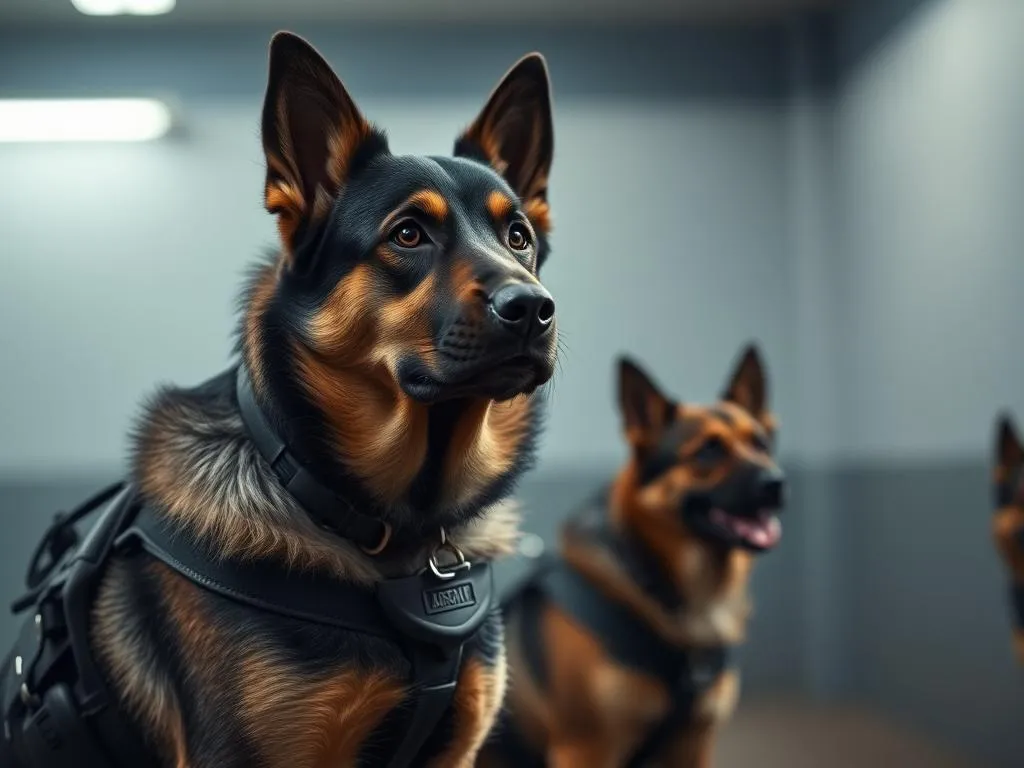
Police dogs play a vital role in law enforcement, serving as invaluable partners to their human counterparts. These highly trained animals assist in various tasks, including search and rescue missions, narcotics detection, and even crowd control. However, not all dogs that enter police training succeed. This raises an important question: what happens to dogs that fail police training? Understanding the training process, reasons for failure, and the options available for these dogs is crucial to ensure their humane treatment and well-being.
Understanding Police Dog Training
The Purpose of Police Dogs
Police dogs are not just pets; they are working animals trained for specific roles within law enforcement. Their duties can vary significantly depending on the needs of the police department. Common types of police work include:
- Search and Rescue: Dogs are trained to locate missing persons or find victims in disaster situations.
- Narcotics Detection: Certain breeds are adept at sniffing out illegal drugs, helping to combat drug-related crimes.
- Crowd Control: Some dogs are specially trained to help manage large crowds during public events or protests.
Certain breeds are particularly well-suited for police work, including the German Shepherd and Belgian Malinois. These breeds are known for their intelligence, strength, and trainability, making them ideal candidates for police training.
The Training Process
The training regimen for police dogs is intense and demanding. It typically includes:
- Basic Obedience: Dogs must first learn essential commands and develop a strong bond with their handlers.
- Specialized Skills: Depending on their intended role, dogs may undergo further training in tracking, detection, or apprehension techniques.
Training programs can last several months and involve a rigorous schedule, including physical conditioning and mental stimulation. Handlers play a crucial role in this process, guiding their dogs and ensuring they are prepared for the challenges of police work.
Reasons for Failing Police Training
Behavioral Issues
Not all dogs are suited for the high-stress environment of police work, and some may exhibit behavioral issues that hinder their training. Common problems include:
- Aggression: Some dogs may display aggressive tendencies that are incompatible with police work.
- Anxiety: High-stress situations can lead to anxiety in certain dogs, making them unsuitable for the job.
A dog’s temperament is critical in determining its suitability for police work. A strong, stable disposition is essential for handling the pressures of the role.
Physical Limitations
Physical health is another significant factor in police dog training. Some dogs may experience health concerns that arise during training, such as:
- Injury: Rigorous training can lead to injuries that prevent a dog from continuing.
- Health Issues: Certain breeds may be predisposed to health conditions that disqualify them from service.
Additionally, the physical abilities required for police work—such as agility, endurance, and strength—are critical factors in determining a dog’s success.
Incompatibility with Handler
The relationship between a police dog and its handler is vital for success. Sometimes, a pairing may not work due to:
- Lack of Bonding: If a dog does not bond well with its handler, it can hinder their effectiveness during training and in the field.
- Different Working Styles: Handlers and dogs must be able to communicate and work together seamlessly, and mismatched styles can lead to failure.
The Process Following Training Failure
Assessment and Evaluation
When a dog fails training, it undergoes a thorough assessment and evaluation. Trainers and handlers examine the dog’s performance and behavior to determine the reasons for failure. Criteria for assessing a dog’s future can include:
- Behavioral evaluations
- Physical health assessments
- Compatibility with potential new roles or handlers
Options for Dogs That Fail
Re-training
One option for dogs that fail police training is re-training. Some dogs may possess skills that can be redirected to different roles, such as:
- Therapy Dogs: Dogs with a calm disposition may excel in therapy work, providing comfort and support.
- Service Dogs: Certain dogs can be trained to assist individuals with disabilities.
Various programs exist to facilitate re-training, helping these dogs find new, fulfilling roles.
Adoption
For dogs that are not suited for any police work, adoption is often the best option. Many police departments collaborate with organizations and shelters to facilitate the adoption of failed police dogs. These dogs are often placed in loving homes where they can live out their lives as cherished pets.
Retirement
In some cases, older dogs or those with health issues may be retired from active duty. Retirement for these dogs typically involves:
- Care: Retired police dogs often stay with their handlers or are placed in homes that can provide appropriate care.
- Living Conditions: Ensuring a comfortable, safe environment is crucial for their well-being.
Retirement can be a dignified and peaceful option for dogs that have served valiantly.
The Impact of Training Failure on Dogs
Psychological Effects
When dogs fail police training, the psychological effects can be significant. Emotional impacts may include:
- Frustration: Dogs may feel a sense of failure or frustration if they do not meet training expectations.
- Behavioral Changes: Some dogs may develop anxiety or behavioral issues after failing training.
Understanding these effects is important for providing the necessary support and care during the transition.
Physical Well-being
The physical well-being of dogs after training also requires attention. Rigorous training can lead to health implications, such as injuries or chronic conditions. Ensuring proper post-training care, including regular veterinary check-ups and a balanced diet, is essential for maintaining a dog’s health.
Success Stories of Rehomed Dogs
Case Studies
Despite the challenges faced by dogs that fail police training, many have found second chances in loving homes. For example:
- Max, a German Shepherd, struggled with anxiety during training but was successfully adopted by a family that provided the patience and environment he needed to thrive.
- Bella, a Belgian Malinois, exhibited a strong desire to please but failed the rigorous training standards. After her adoption, she became a beloved family pet and a fantastic companion for children.
These success stories highlight the resilience of dogs and the positive outcomes that can result from rehoming.
Community Involvement
Communities play a crucial role in supporting the adoption of failed police dogs. Local organizations and initiatives promote awareness about the need for homes for these animals. Community events can help raise funds and resources for adoption programs, ensuring that these dogs receive the care they deserve.
Conclusion
The journey of police dogs from training to potential rehoming is filled with challenges and opportunities. While not all dogs succeed in police training, it is essential to ensure their humane treatment and provide them with second chances. By understanding what happens to dogs that fail police training, we can foster a compassionate approach to their care and support organizations dedicated to finding them loving homes.
Through awareness and community involvement, we can help ensure that these deserving animals receive the love and care they need to thrive outside of their intended roles in law enforcement.









